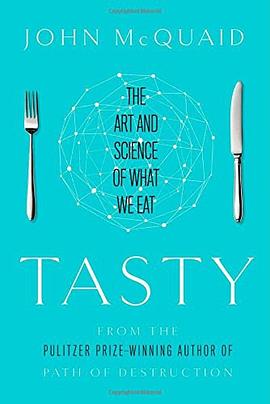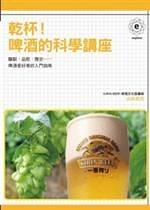

具體描述
A fascinating and deeply researched investigation into the mysteries of flavor—from the first bite taken by our ancestors to scientific advances in taste and the current "foodie" revolution.
Taste has long been considered the most basic of the five senses because its principal mission is a simple one: to discern food from everything else. Yet it's really the most complex and subtle. Taste is a whole-body experience, and breakthroughs in genetics and microbiology are casting light not just on the experience of french fries and foie gras, but the mysterious interplay of body and brain.
With reporting from kitchens, supermarkets, farms, restaurants, huge food corporations, and science labs, Tasty tells the story of the still-emerging concept of flavor and how our sense of taste will evolve in the coming decades. Tasty explains the scientific research taking place on multiple fronts: how genes shape our tastes; how hidden taste perceptions weave their way into every organ and system in the body; how the mind assembles flavors from the five senses and signals from body's metabolic systems; the quest to understand why sweetness tastes good and its dangerous addictive properties; why something disgusts one person and delights another; and what today's obsessions with extreme tastes tell us about the brain.
Brilliantly synthesizing science, ancient myth, philosophy, and literature, Tasty offers a delicious smorgasbord of where taste originated and where it's going—and why it changes by the day.
著者簡介
John McQuaid has written about city-destroying super-termites, the slow collapse of fishing communities, hurricane levee engineering, mountaintop removal coal mining, and the global flower business for various publications, including Smithsonian magazine, The Washington Post, Wired, Forbes.com and EatingWell magazine. His work has won a Pulitzer Prize, as well as awards from the American Association for the Advancement of Science, the American Institute for Biological Sciences, and the International Association of Culinary Professionals. He lives in Silver Spring, Maryland, with his wife, son and daughter. The struggle to satisfy and understand the kids' strange and contradictory food choices (the elder liked super-hot peppers and limes, the younger rice, pasta and cheese) was the inspiration for his book Tasty.
圖書目錄
讀後感
我一贯非常爱看吃食类的书,远有唐鲁孙,中有蔡澜,近有殳俏,读他们的书如同开席,但我最喜欢汪曾祺老先生。汪老不专写吃,但信笔拈来,就是滋味。他的笔下曾写过一位在国子监当过差的祭酒老人,老人的说法儿是:“哪儿也比不了北京。北京的熬白菜也比别处好吃——五味神在北...
評分众所周知,饮食在我们的生活中占据着不可替代的重要作用,所谓民以食为天。如今,遍布城乡的各种大大小小的餐馆、饭店,花样繁缛的各色菜系,色、香、味、形俱全的菜肴琳琅满目,令人大有应接不暇之感。饮食的影响无所不在,人们于路上相遇,每每一句:“吃了吗?”简...
評分多少个回合的被吐槽加自嘲?“吃货”这个称号终于变成了一个中性词。尽管如此,“人”被一个“货”字指代,其中的奚落和不屑还是显而易见的。其实,不待见好吃的人,并不始于“吃货”这个词诞生时,“好吃懒做”这个固定搭配也许没有进入现代汉语词典,可是,我小的时候它就已...
評分总听人说,吃货有义务比普通人更有文化。但说到有文化,谁也比不上麦奎德这位学术派吃货。 约翰·麦奎德毕业于耶鲁大学,曾在《史密森杂志》《华盛顿邮报》《连线》等著名杂志上发表文章,他的作品还拿过美国科学促进会、美国生物科学协会和国际专业烹饪协会的大奖。 emmm……...
用戶評價
初看標題以為總歸會虐心虐胃 實則更多是從神經科學/心理學/社會學角度講述人類飲食習慣與口味喜好的演變 裏麵的科學小故事都很有趣哇!
评分初看標題以為總歸會虐心虐胃 實則更多是從神經科學/心理學/社會學角度講述人類飲食習慣與口味喜好的演變 裏麵的科學小故事都很有趣哇!
评分初看標題以為總歸會虐心虐胃 實則更多是從神經科學/心理學/社會學角度講述人類飲食習慣與口味喜好的演變 裏麵的科學小故事都很有趣哇!
评分初看標題以為總歸會虐心虐胃 實則更多是從神經科學/心理學/社會學角度講述人類飲食習慣與口味喜好的演變 裏麵的科學小故事都很有趣哇!
评分初看標題以為總歸會虐心虐胃 實則更多是從神經科學/心理學/社會學角度講述人類飲食習慣與口味喜好的演變 裏麵的科學小故事都很有趣哇!
相關圖書
本站所有內容均為互聯網搜索引擎提供的公開搜索信息,本站不存儲任何數據與內容,任何內容與數據均與本站無關,如有需要請聯繫相關搜索引擎包括但不限於百度,google,bing,sogou 等
© 2025 book.quotespace.org All Rights Reserved. 小美書屋 版权所有




















